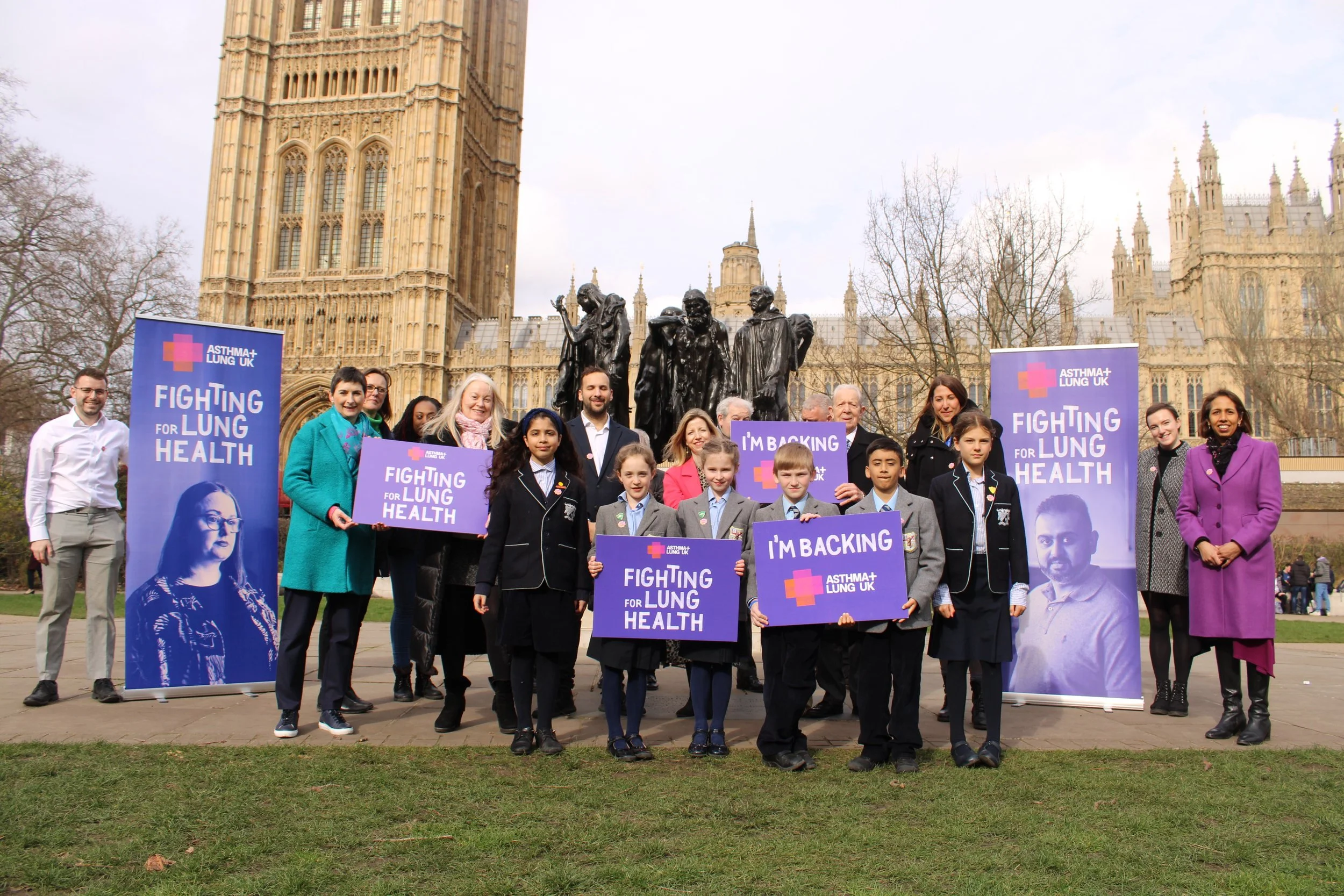Time to tackle lung health inequalities
Air pollution is the biggest environmental threat to public health. At a cost of £1.1bn per year to the NHS, it is draining our resources, straining our health system and cutting short over 2,500 lives a year in Scotland. Joseph Carter, Head of Asthma and Lung UK Scotland explains why air pollution is such a big problem.
Sarah Woolnough, CEO of Asthma UK and the British Lung Foundation, has written to government urging them to do more to address lung health inequalities. Here she explains why this is so important.
Over the past year, with the impact of COVID-19 dominating our lives, we’ve seen more than ever how vital it is that we protect everyone’s lungs. However, little has been done to address the stark inequalities people with lung conditions face across the country.
12 million people in the UK have a history of lung disease but there is currently a postcode lottery when it comes to lung health. Where you live determines how likely you are to get a lung condition, what treatment and care you have access to and ultimately how long you will live. It is not right that where you live determines your health.
The government have committed to ‘Level Up’ across the country to make sure no cities, towns and regions are left behind. That’s why I’m calling for them to put urgent policy changes in place to make sure everyone has the best possible lung health.
Introduce national lung screening programme
People in the poorest areas of the country are more than twice as likely to die from lung cancer or chronic obstructive pulmonary disease (COPD) than those in the richest areas.
The NHS Lung Health Checks programme is currently offering lung screening to people at the highest risk of lung cancer in pilot areas around the country. Lung cancer is typically diagnosed late meaning treatment options are limited and prognosis is poor. However, former trials have shown that offering CT scanning to those at the highest risk can cut deaths from lung cancer by 20%.
We want to ensure that this programme is rolled out across the country and is also used to screen the same group of people for COPD to ensure early diagnosis for all.
Make England smoke-free by 2030
We know that one of the main reasons for inequalities in lung health is the patchy access to smoking cessation support which is critical in helping people quit this deadly addiction. While smoking rates are at an all-time low, they vary enormously between different regions and social groups.
A key way that healthcare professionals can help people to quit is Very Brief Advice (VBA). VBA is a 30-second conversation recommended by the National Institute for Health and Care Excellence (NICE) where health care professionals can support people to quit smoking by asking all patients if they smoke and advising on the help and treatment available. We know it’s an effective method, but it is not used enough. This is why we’re calling for all health care professionals to be trained to deliver VBA.
Promote local pharmacies
Community pharmacies are a vital way we can support people with lung conditions but they are underused. 99% of the most deprived population live within a 20-minute walk of a community pharmacy, meaning they could play a significant role in tackling health inequalities by helping people who may find it hard to access a GP.
The government must increase public awareness of pharmacies and give them greater support and funding so they can offer services like medicines reviews, inhaler technique advice, stop-smoking support and flu and covid vaccinations.
Stop unfair prescription charges
A survey carried out by Asthma UK found that 76% of people with asthma sometimes or always struggle to afford their prescriptions.
The impact of this can be devastating. With the right medication, asthma is a manageable condition for most people. However, if people are not able to take their medication, they could be at risk of having a life-threatening asthma attack.
People on lower incomes are already nearly twice as likely to have had an asthma attack in the last year than those on higher incomes. The inability to afford prescription charges is highly likely to be contributing to this, leaving people struggling to manage symptoms, more likely to need hospitalisation and even at risk of death.
The government must review the prescription charges exemption list and include people with asthma, so they do not have to pay for life-saving medication.
Act now and save lives
There has never been a more important time to address inequalities in lung disease. The pandemic has shown like never before how important it is that we all have healthy, resilient lungs, regardless of our background and where in the country we live.
These solutions are evidence-based and effective. We need the government to put these policies in place to take all our lung health seriously now and save lives in the future.
To find out more about our policy work please visit our website.
We empower people with lung conditions to make changes that can be transformative.
Please donate now to help make sure people with lung conditions can live well this year.








Beki is a PhD student from the West Midlands. She has several health conditions including severe asthma and Ehlers-Danlos syndrome (EDS). EDS is a rare inherited condition that affects connective tissue. Last May, Beki set herself a fundraising challenge to complete 180,000 steps to raise money to mark World Asthma Day and EDS Awareness Month.